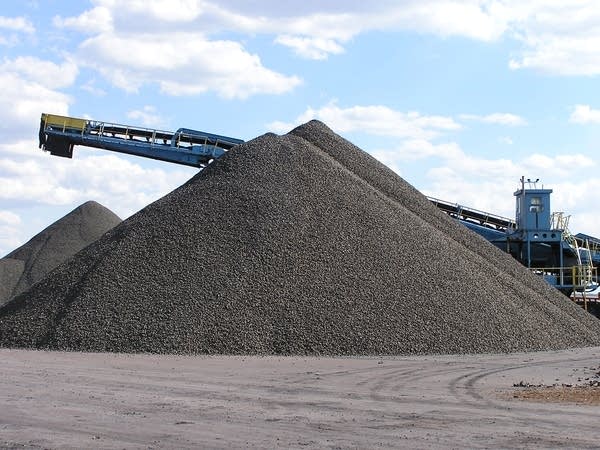Analysts say taconite layoffs not the start of a trend
Go Deeper.
Create an account or log in to save stories.
Like this?
Thanks for liking this story! We have added it to a list of your favorite stories.

Iron ore mining is a classic boom and bust industry. When times are good, they can be really good. Of course, the opposite is true when the economy slows.
For proof, one need look no further than Cliffs Natural Resources, the nation's largest taconite producer. Last year the company earned a record $1.6 billion, up nearly 60 percent from the previous year.
But on Monday the company disclosed that it will lay off 125 workers at its Northshore Mining facility in Babbitt and Silver Bay. Another 500 people will lose their jobs at a Michigan plant.
"Cliffs Natural Resources is announcing some difficult decisions today," Cliffs spokeswoman Sandy Karnowski said.
Turn Up Your Support
MPR News helps you turn down the noise and build shared understanding. Turn up your support for this public resource and keep trusted journalism accessible to all.
Karnowski said the company's decision was based on volatile swings in the price of iron ore pellets, and declining steel production in North America.
"Cliffs' decision is based on what we see in the U.S. economy, because we provide taconite pellets to blast furnaces in the U.S.," she said. "However there has been a softening in the overall world market for iron ore pellets, and that has affected pellet prices, and that in turn has had some impact on Cliffs."
Karnowski also said that layoffs at Northshore Mining stem from smaller orders from some of that facility's customers.

Cliffs and U.S. Steel and Arcelor Mittal, the other big operators on the Iron Range, ship their taconite pellets to steel mills in the Midwest, in cities like Chicago, Cleveland and Detroit.
The fortunes of the Minnesota and Michigan mines have always been intertwined with the domestic steel industry, longtime steel industry analyst Michelle Applebaum said.
Although there is a weak domestic demand for taconite, Appelbaum doesn't see anything on the horizon that will likely push it any lower.
"I think there's more insulation in general for the domestic shippers to be shipping to their existing customers," she said. "So I don't see demand for ore in North America dropping from current levels."
Applebaum said Cliffs' mistake was in overestimating their export market. American steel exports were off nearly 10 percent in September.
There is also an oversupply of iron ore on the global market, particularly from China, Applebaum said.
"Where there's vulnerability is where people were trying to export, because there's weakness in the global markets because of the expansion of capacity, which has outstripped the demand," she said.
Applebaum doesn't expect a lot of similar announcements of layoffs or production slowdowns from other iron ore operations in the Midwest.
Peter Kakela, an industry expert at Michigan State University, agreed. He said the iron ore and steel industries have fared much better than the overall economy the past two years.
"And I think this is a slight adjustment in terms of actual demand of the physical ore," Kakela said. "I don't see prices really coming down very much. I just think it's a constriction of demand and therefore a reduction in supply."
The iron ore industry in northeast Minnesota has expanded aggressively in recent years, even during the recession. Mining related employment and wages are at their highest level in years. India-based Essar Steel is building the first new taconite operation on the Iron Range in decades. Also expanding operations are two new upstarts — Magnetation, which makes iron concentrate from old taconite waste, and Mesabi Nugget, which manufactures high-purity iron nuggets.
"I think there's a real good indication that the long term outlook for iron ore mining in northern Minnesota still continues to be strong," said Craig Pagel, president of the Duluth based Iron Mining Association.
Pagel calls the Cliffs announcement a short term blip. But it is a blip that will leave 125 people in Silver Bay and Babbitt without a job on Jan. 5.
Silver Bay Mayor Scott Johnson said his town has seen the booms and busts of the iron ore industry before. He said the latest layoffs are not nearly as devastating as when the plant completely shut down in the mid 1980s, when it was owned by Reserve Mining.
"We're in that business and we're used to closures and shutdowns," Johnson said. "We got through it before," he said, "and we'll do it again."
• Follow Dan Kraker on Twitter: http://twitter.com/dankraker



